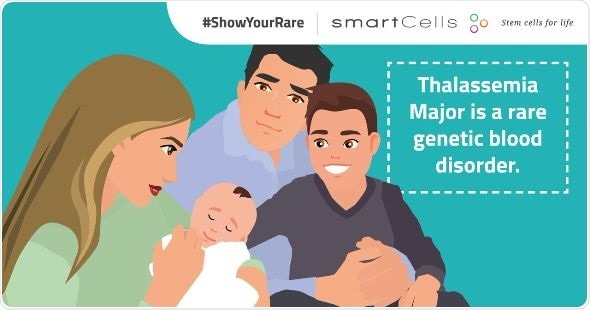There are more than 6000 known rare diseases and over 30 million people living daily with them. 28th February marks Rare Disease Day 2018, a date that highlights awareness around these conditions and the need for more research into them. Private cord blood company, Smart Cells, has chosen to support Rare Disease Day this year by running a social media campaign across their platforms.

If you’re living with a rare disease, which is defined by the European Union as one which affects less than 1 in 2000 people, you might feel alone with your condition. Treatments and cures can be few and far between; misdiagnoses and delayed treatment for rare diseases are common. This is due to the rarity of the conditions meaning that the opportunity to research them is so small, and scientific knowledge surrounding them is lacking.
The theme for this year’s Rare Disease Day is research and patient participation. Encouraging healthcare professionals, policymakers and researchers to seize the opportunity for research with current patients can make a world of difference to developments for those being diagnosed or treated currently and in the future.
This is why Smart Cells have chosen to show their support for Rare Disease Day 2018. Thanks to occasions like this, awareness has increased significantly. The first Rare Disease Day events took place in 2008 in just 18 countries; in 2017, 94 countries participated. Several conditions that Smart Cells’ audience live with can be categorised as rare diseases, and so their campaign aims to increase their awareness of what is being done to support them as well as encouraging them to participate in research that could potentially help future patients with these conditions.
Smart Cells’ social media campaign aims to cover the following four bases:
· What is Rare Disease Day?
· What can you do to help for Rare Disease Day?
· What is a rare disease?
· Two examples of rare diseases: Thalassemia Major and Severe Combined Immunodeficiency.
The imagery will be shared on Smart Cells’ blog and social media accounts – Facebook, Twitter and Instagram – in the run up to Rare Disease Day 2018 and on the day itself.